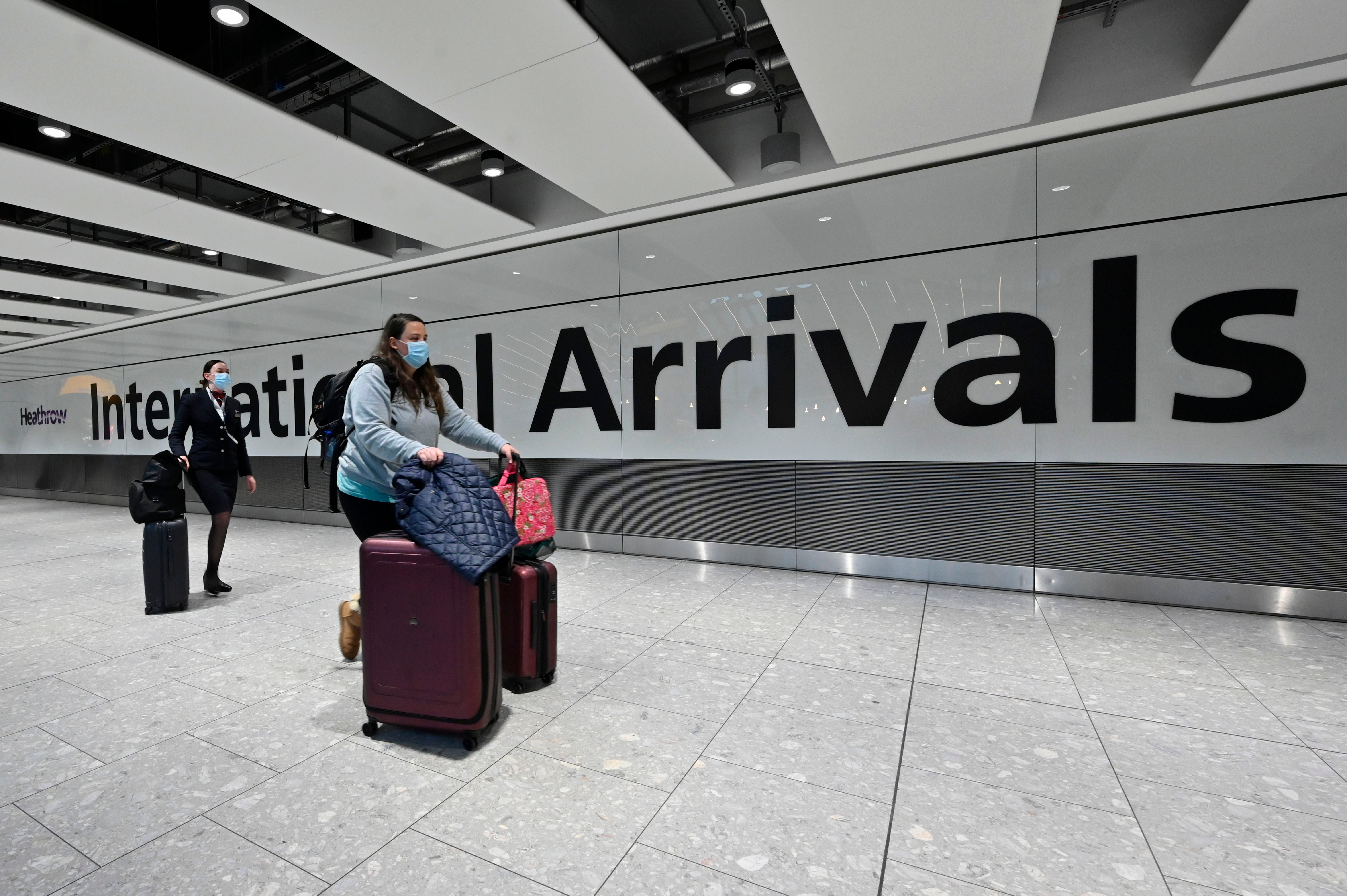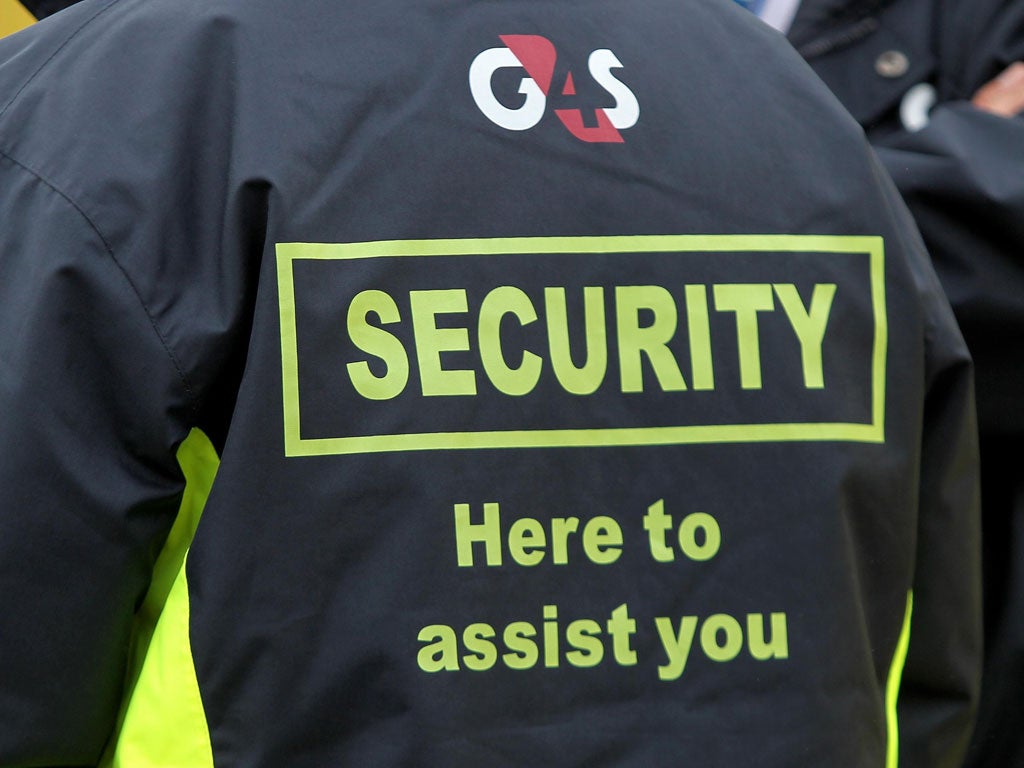Lone women in Covid quarantine hotels to get female guards
Two male guards will be allocated if a female guard is not available, DHSC said

Female guards will now escort women quarantining alone in hotels after a number of male guards were accused of sexual harassment.
The decision announced by the Department of Health and Social Care (DHSC) on Thursday comes after 16 women described to the BBC the male guards' inappropriate behaviour while they were in Covid-19 quarantine.
The women claimed their complaints had been ignored, downplayed, or disbelieved.
Labour had demanded that ministers take action after the claims made against guards working for the outsourcing firm G4S had come to light.
Women self-isolating alone on arrival from a “red list” country, which requires quarantining in a government-approved hotel at a cost of £1,750 for 10 days, will now have female guards to chaperone them when they leave their rooms for exercise.
When female guards are not available, two male guards would be allocated “with each guard chaperoning the other to ensure appropriate behaviour”, the DHSC said.
Sarah, a former hotel quarantine guest, told the BBC that she welcomes having female guards, but that she would “find two male guards more intimidating than just one lone guard”.
The 23-year-old medical student from Manchester had been chaperoned during her exercise break by a male guard who grabbed her by the arm, asked if she had a boyfriend, and showed her to a group of other guards, who spoke in a different language and laughed at her – she said.
On having more than one male guard, she added: “I don’t think it ensures the safety of women, rather it increases possible risk.”
The Women’s Equality Party said the “answer to threatening behaviour from men is not more men.”
It added: “As these hotels are mandated by government, it is their duty of care to ensure they are appropriately safeguarded.”
Brittany, 26, was one of the women who reported to the BBC her experience in quarantine after arriving from South Africa in May.
She said a guard sent her about 13 Facebook messages on her second day of quarantine in the Radisson Blu Edwardian hotel at Heathrow. She said she had ignored his friend request and did not reply.
On her fourth day, the guard sent a message saying: “This evening I’ll come.” Brittany said that she barricaded herself in with her bags while he knocked repeatedly on her door.
The next day, when Brittany asked a different guard to escort her back to her room, the first guard seemed offended, she said, and knocked on her door while loudly complaining. She said she was left “shaking” from the ordeal and did not leave her room again until her quarantine was over.
Brittany accused the hotel of “victim-blaming” after she was asked – once she left the hotel – why she did not report the guard to management or police. Her complaint was also downplayed by the DHSC, which deemed the Facebook messages to have “nothing that relates to a sexual nature”.
Other women told the BBC that male guards knocked on their doors at night with offers to “watch a movie and chill”, unsolicited sexual attention, asking them sexually related questions, and leaving messages for them asking them to message them back.
All of the women said they are dissatisfied with the way their complaints were handled, and a number of them, including Sarah, said they received no response.
DHSC pays security companies G4S and Mitie to make sure people in hotel quarantine follow the rules.
The maximum value of G4S’s contract from February to June 2021 was £66 million, and the maximum value of Mitie’s for the same time frame was £19.6m – according to published contracts awarded by the government.
The Independent contacted G4S over the allegations made against the male guards, and whether any action has been taken.

A G4S spokesperson said: that it has a “zero tolerance approach” to employees failing to “treat all people with respect”.
They added: “To provide additional assurance we have enhanced training, supervision and operational and safeguarding procedures. We have also established an oversight body comprising of women in senior executive roles.
“The proportion of women to men in security officer roles at quarantine hotels is typical of the UK security industry and we are working to attract more women to the role.
“Any officer accused of harassment is removed from the site and prohibited from working at any quarantine hotel whilst an investigation takes place.“
A guard who is found to have acted inappropriately could have their Security Industry Authority (SIA) licence withdrawn, the spokesperson said.
The DHSC also says there is now a dedicated DHSC Managed Quarantine Service Complaints Team, with a clear process in place for reporting problems.
"We are doing our upmost to ensure every person in managed quarantine gets the support they need and we're urgently working to investigate complaints of this nature," a DHSC spokesperson said.
Join our commenting forum
Join thought-provoking conversations, follow other Independent readers and see their replies
Comments
Bookmark popover
Removed from bookmarks